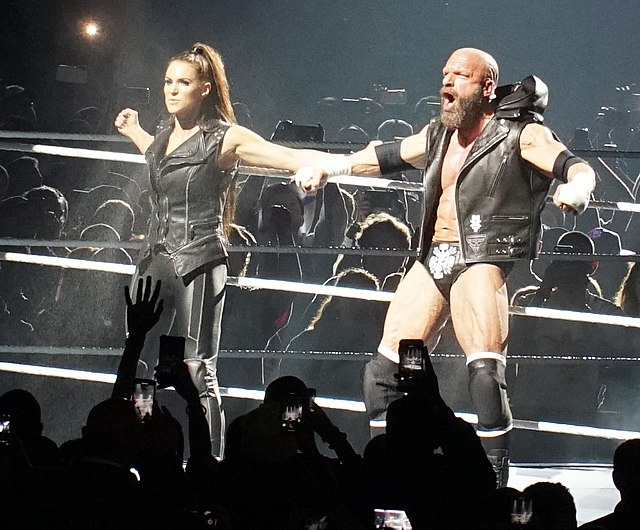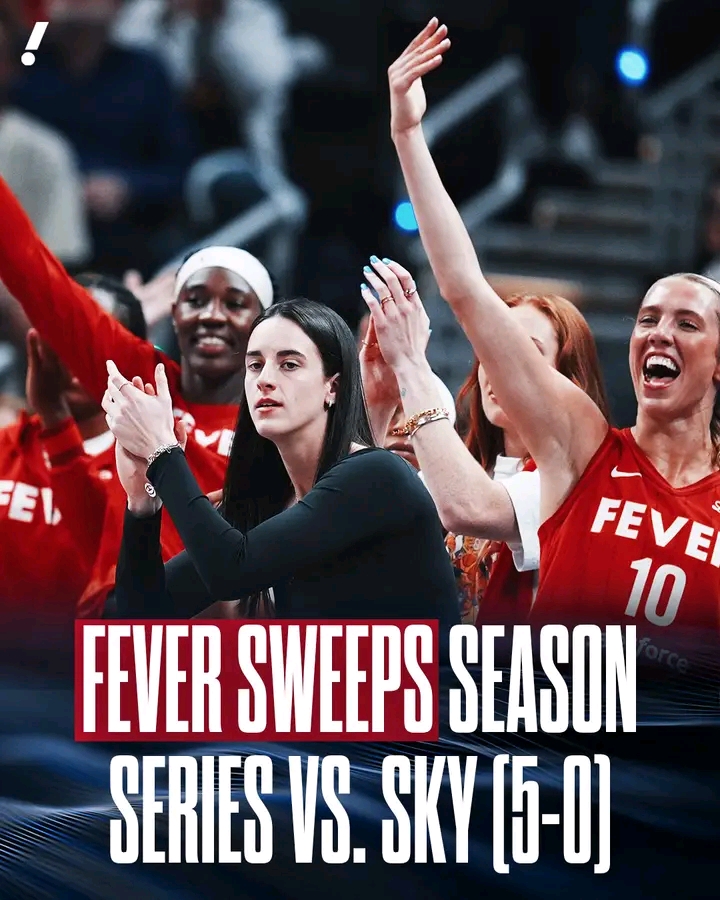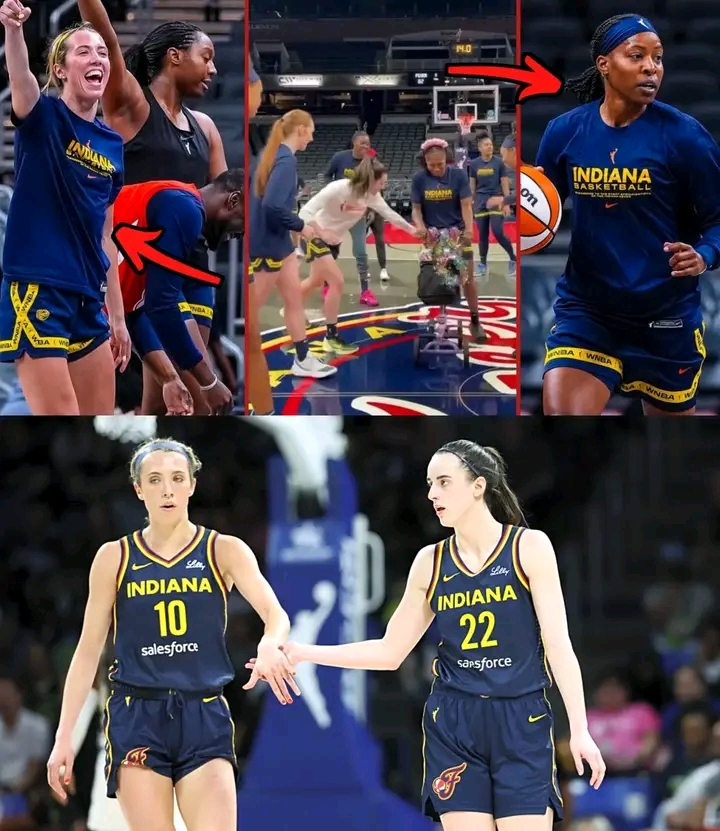
In the ever-evolving world of professional wrestling, few names hold as much weight as Triple H and Stephanie McMahon. Both integral figures in WWE’s success over the last few decades, their legacy is intertwined with the growth and transformation of the company. However, behind the scenes, the power dynamics of WWE have often been a subject of speculation, particularly as Vince McMahon stepped down as Chairman and CEO due to personal and legal challenges in 2022. With Vince’s exit, the battle for control of the company became more intense, and no two individuals have been more central to this power struggle than his daughter, Stephanie, and his son-in-law, Triple H.
The clash between these two figures—Triple H, the wrestling legend turned head of creative, and Stephanie McMahon, the company’s former Chief Brand Officer and co-CEO—could have a profound impact not only on WWE’s future but also on the broader landscape of professional wrestling. Their rivalry, though often subdued under the veneer of family unity, represents a critical moment in WWE’s history, one that could reshape the sport for years to come. This article will explore the factors driving their clash, the stakes involved, and how their battle could influence the direction of WWE and professional wrestling in general.
WWE, originally known as the World Wrestling Federation (WWF), has always been a family-run business. At the helm for decades was Vince McMahon, who turned a regional promotion into a global entertainment empire. His vision for sports entertainment, blending athleticism with entertainment, made WWE a household name. However, Vince’s control over the company was not just about his business acumen but also about his family’s involvement.
Vince’s wife, Linda McMahon, has played an essential role in the company’s corporate side, while their children, Stephanie and Shane, were deeply involved in both the business and creative aspects of WWE. However, while Shane McMahon often played a more peripheral role, Stephanie’s involvement in WWE has been more pronounced, eventually leading her to a key leadership position. Her rise to co-CEO alongside Nick Khan, after Vince’s retirement, has placed her in a position to influence the future direction of the company.
Triple H, whose real name is Paul Levesque, has long been involved with WWE, both in front of the camera and behind it. His wrestling career was marked by numerous world titles, legendary rivalries, and a commitment to professional wrestling. However, Triple H’s real mark on WWE was made after his in-ring career began to wind down. He transitioned into an executive role, overseeing WWE’s developmental territory NXT, where he helped shape the next generation of talent and storytelling.
But with Vince McMahon’s retirement, Triple H stepped into an even more prominent role—taking over WWE’s creative direction. This move was hailed by many as the dawning of a new era for the company, one in which Triple H could reshape the product to reflect his vision, a vision that many believed was more aligned with the tastes of modern wrestling fans.
As the new co-CEO of WWE, Stephanie McMahon had a significant influence on the company’s overall direction. However, despite her success in the corporate realm, there was an inevitable shift in WWE’s creative direction following Triple H’s ascension to the role of Chief Content Officer. While Stephanie had extensive experience in the business side of WWE, Triple H had cultivated deep knowledge of the wrestling product and was regarded as the heir to Vince’s creative empire.
As Triple H took control of the company’s storytelling and in-ring product, fans began to see a noticeable shift in WWE programming. The emphasis on in-ring action, longer story arcs, and a more competitive style of booking harkened back to the “Attitude Era” and “Ruthless Aggression Era” that many fans fondly remembered. With wrestlers like Seth Rollins, Roman Reigns, and Kevin Owens receiving prominent pushes, WWE seemed to be veering away from Vince’s heavily scripted, celebrity-driven style.
However, this creative shift did not come without its challenges. Stephanie, as a co-CEO, still had significant sway over the business side of WWE, including its corporate partnerships, international expansion, and media deals. Her vision for WWE was more business-oriented, focusing on maintaining the company’s lucrative television deals, increasing its market share in digital streaming, and securing more mainstream sponsorships.
The tension between Triple H’s creative vision and Stephanie’s business-focused leadership could be viewed as the foundation of a larger power struggle. Both have distinct approaches to WWE’s future, with Triple H emphasizing wrestling authenticity and long-term storytelling, while Stephanie prioritizes the company’s financial success and public image.
The divide between the two could be boiled down to a fundamental question: Should WWE prioritize the authenticity of its wrestling product, or should it focus on maintaining and expanding its corporate and financial power? On one hand, Triple H’s vision, rooted in his experience as a wrestler, is aligned with the idea of putting on a compelling product that satisfies diehard fans. His tenure in charge of NXT is a perfect example of this philosophy, as NXT was known for its high-quality matches, storytelling, and deep character development.
On the other hand, Stephanie’s focus on the corporate side of the business cannot be overlooked. As a key figure in the WWE’s marketing, branding, and media relations, she has helped secure major media deals and sponsorships that have bolstered WWE’s financial standing. This corporate vision is integral to WWE’s status as a publicly traded company, and it is clear that her business acumen will play a significant role in shaping WWE’s long-term success.
However, it is not just a matter of business versus creative. There are also deeply personal dynamics at play, given that both Triple H and Stephanie are married, with their children representing the next generation of the McMahon family. This personal dimension adds a layer of complexity to an already tense situation. Vince McMahon’s legacy is tied to his family’s control over WWE, and both Stephanie and Triple H are vying for the reins of a company that has shaped their lives and careers.
The outcome of this clash could have far-reaching implications, not only for WWE but for the world of professional wrestling as a whole. WWE is the largest wrestling organization globally, and its decisions often set the tone for the entire industry. If Triple H’s vision of a more wrestling-centric product takes precedence, it could lead to a resurgence in the popularity of professional wrestling as a legitimate sport rather than merely a spectacle. This could result in a more competitive and athletic brand of wrestling, appealing to fans who crave the intensity and authenticity that made the sport famous in its heyday.
Alternatively, if Stephanie’s corporate-driven vision prevails, WWE could continue to lean into its entertainment value, becoming an even more mainstream spectacle. This would likely result in an increase in cross-promotional opportunities, celebrity appearances, and a focus on the global expansion of WWE’s brand.
The clash between Triple H and Stephanie McMahon also has the potential to shape how other wrestling promotions, such as AEW and Impact Wrestling, position themselves in the market. AEW, in particular, has made waves by appealing to fans who feel WWE’s product has become too corporate and sanitized. The battle for control within WWE could lead to a heightened sense of competition in the industry, with each company trying to differentiate itself in a rapidly changing media landscape.
The ongoing power struggle between Triple H and Stephanie McMahon is a battle for the future of WWE—a fight for what the company should prioritize moving forward: creative integrity or financial dominance. Regardless of who ultimately emerges victorious, the clash will be pivotal in determining the direction of the wrestling world for years to come.
Fans will undoubtedly feel the effects of this clash, whether they appreciate the change in WWE’s direction or long for the days of Vince McMahon’s more flamboyant, larger-than-life approach. Regardless of how it unfolds, WWE is at a crossroads, and the outcome of this struggle for the crown will shape the future of professional wrestling in ways that could echo for generations to come.
Wrestling fans should watch closely, for the battle between Triple H and Stephanie McMahon is more than just a corporate rivalry—it’s a defining moment that could change the landscape of the industry forever.





